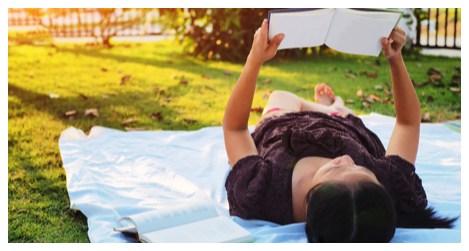
On Deciding to Become a Different Type of Reader
I am an escapist reader. I have been an escapist reader since childhood, and it is the reason I grew to love books in the first place. They provided a safe place where I could temporarily forget about myself and the world around me. I would be transported to a different time and place, and my own worries would become irrelevant, my own life would disappear.
Why did I want to escape my own life? Because I didn’t want to think about family tension. Because I didn’t want to think about my health. Because I didn’t want to think about my loneliness, my insecurity, my uncertainty. So I holed up in my room to avoid my parents and read Pride and Prejudice. I read Harry Potter and the Half-Blood Prince in a hospital bed post-surgery. I read the entirety of A Song of Ice and Fire when I had to move back home after college, unemployed and far from my friends.
Because of the motivation behind my reading habit, it has quite frankly been rare that books affected my way of thinking or stayed with me for very long after turning the final page. Sure, I remember the plots and characters of stories I particularly enjoyed, but the times I’ve been truly touched in my core by the messages and themes of books I’ve read are few and far between.
The first book that genuinely affected me and the way I think and live was The Five People You Meet in Heaven by Mitch Albom. The idea that all things happen for a reason, that all actions and decisions are interconnected — and often in ways that we cannot even see — was somehow incredibly resonant to my apathetic high school self. It helped to make me more thoughtful, more introspective. It helped me decide to be more interested and responsive to what was happening around me. And all of that has helped shape who I am now.
Over the past year, I have slowly started to make an effort to not be so exclusively an escapist reader like I had in the past. The first step has been trying to be more conscientious of reading diversely. Diverse writers, diverse topics, diverse genres. And I have already encountered many wonderful works I might not have picked up before. Of course, I’m not giving up my escapism entirely. That definitely wouldn’t be realistic, and probably wouldn’t be good for my mental health. But, like I first discovered when I read The Five People You Meet in Heaven, I’m learning that books can be so much more than just a place to run away to. They can teach us about the world, they can help us discover ourselves, they can give us tools to do good and make change. And I want to be the type of reader who is active and aware, who can fully benefit from the experience of reading.
Especially now, it is clear that it is becoming increasingly important for me to pursue this little goal of mine. I’ve never been particularly confident in my ability to effect much change, but here is one small thing I can continue to do to be an active and aware citizen of the world. Here is a way I can educate myself on those who are often misrepresented, a way I can help amplify the voices of those who are underrepresented. More than ever before, I will strive to use books, the resource most easily accessible to me, to become someone who can — and will — make this world we call our home better.











